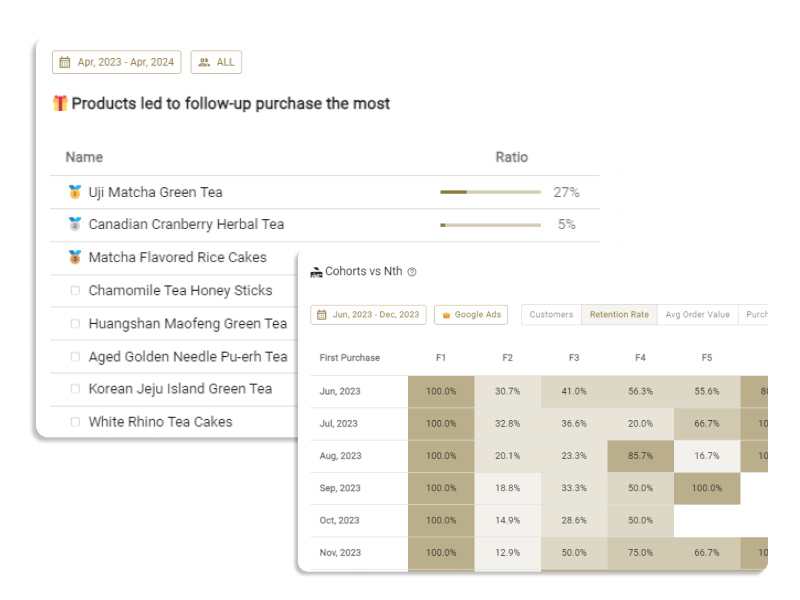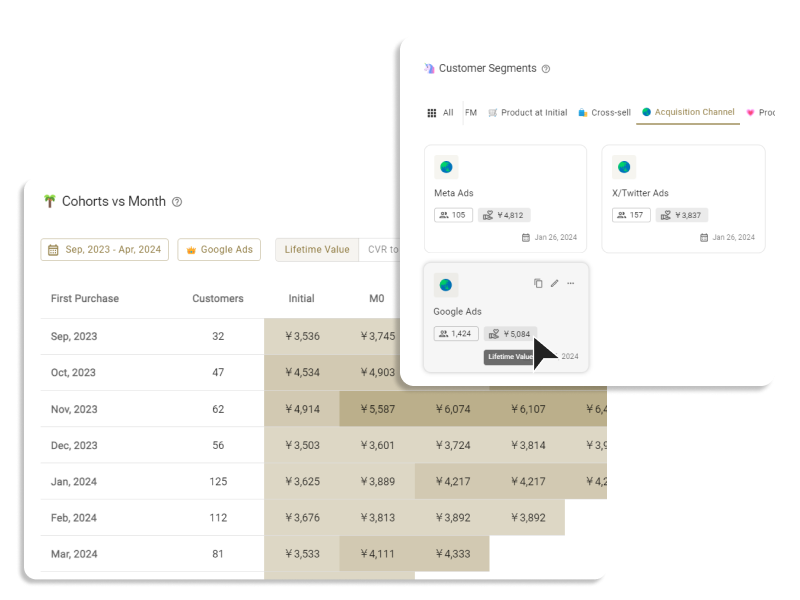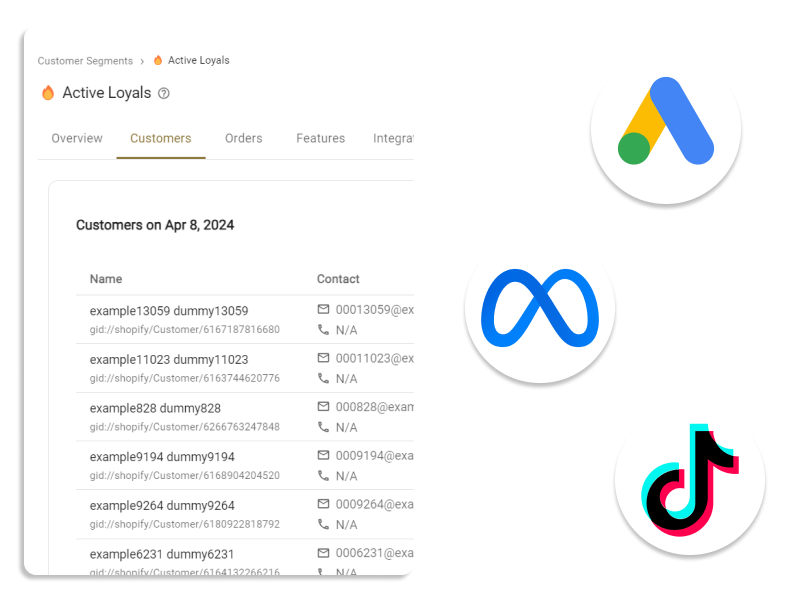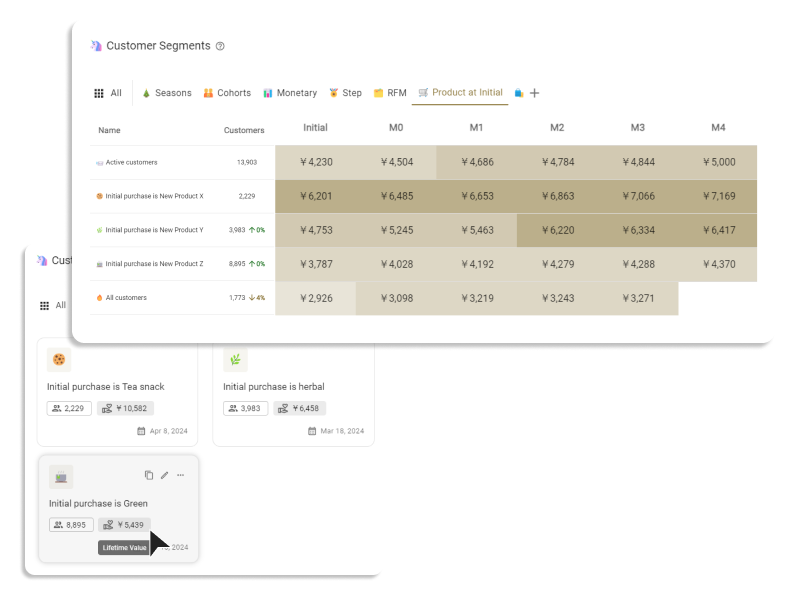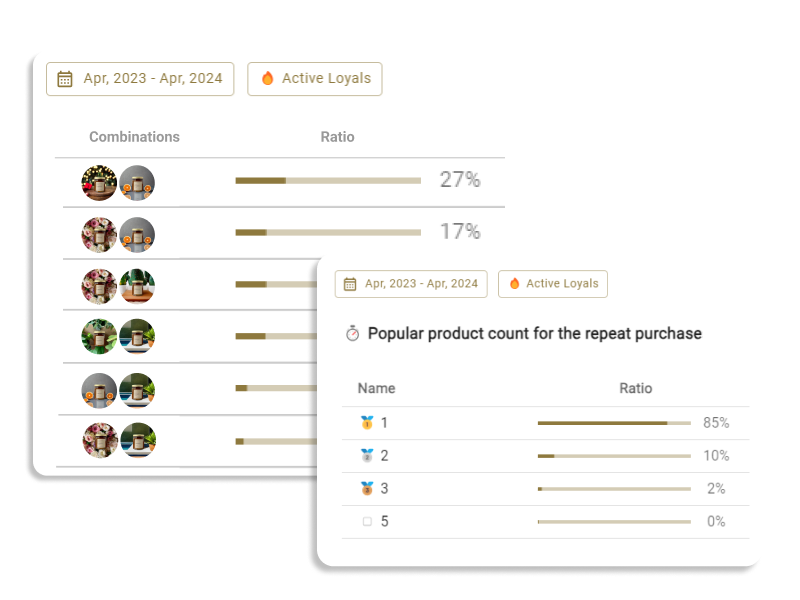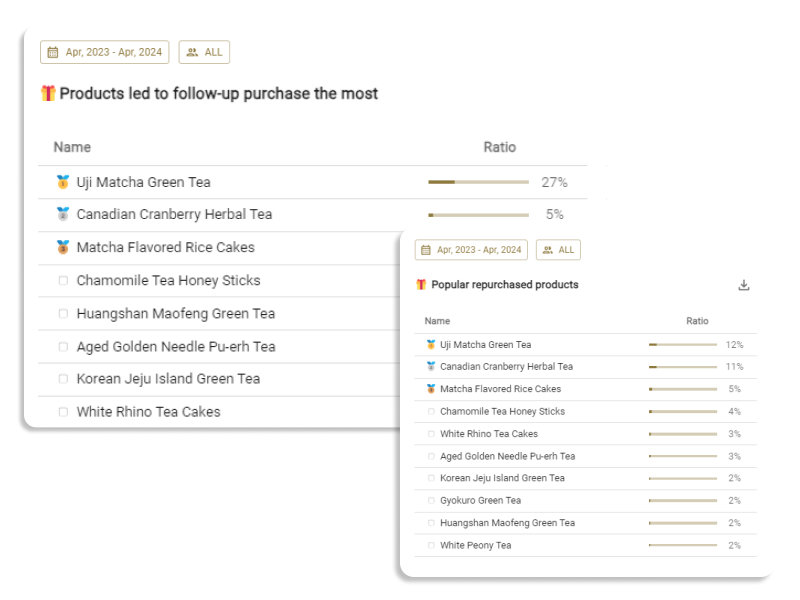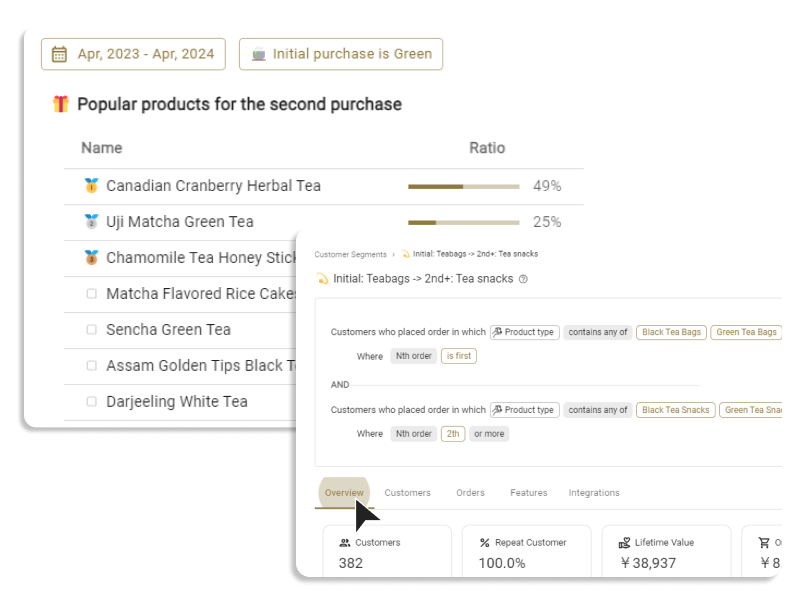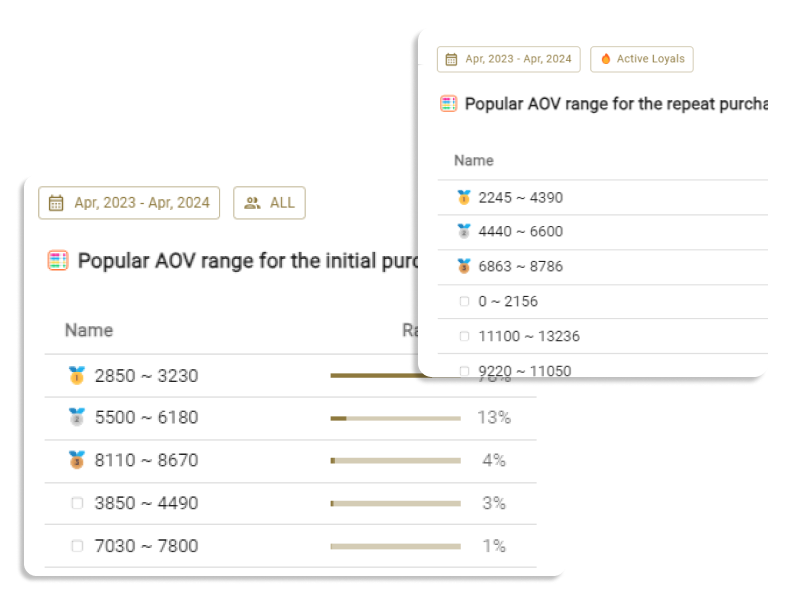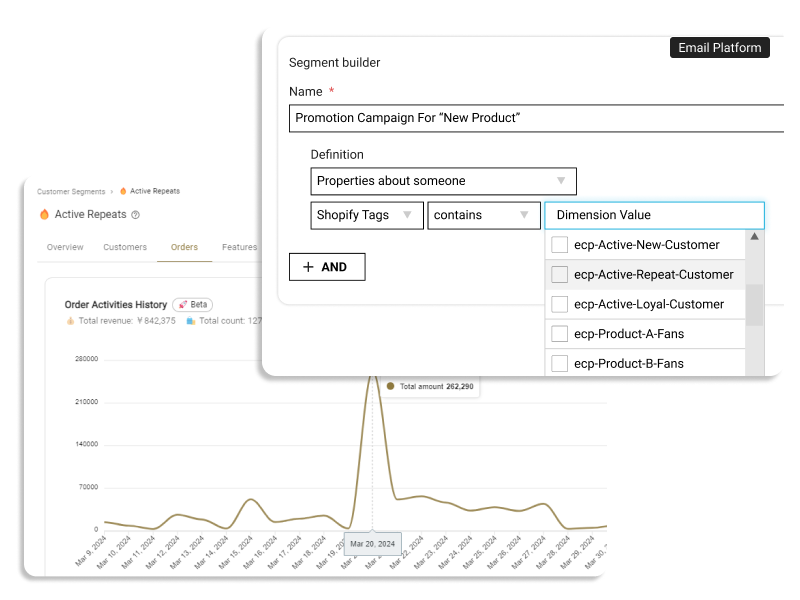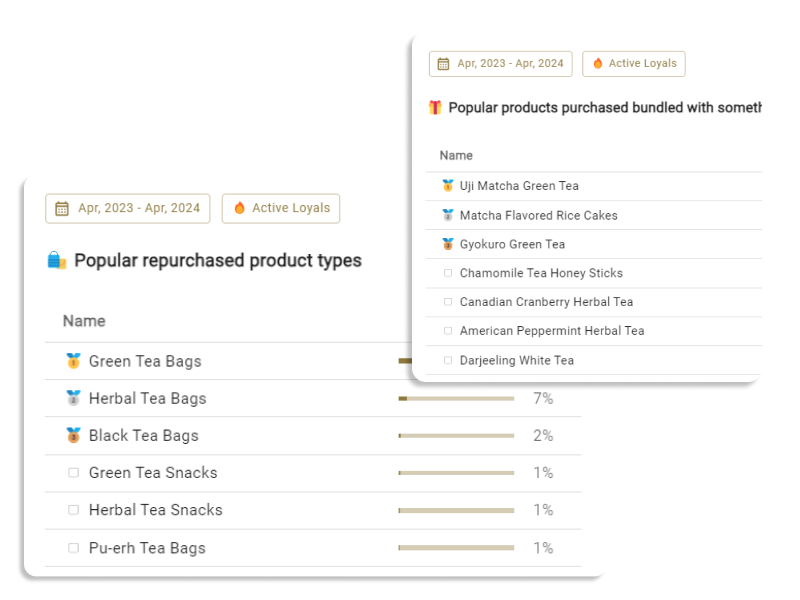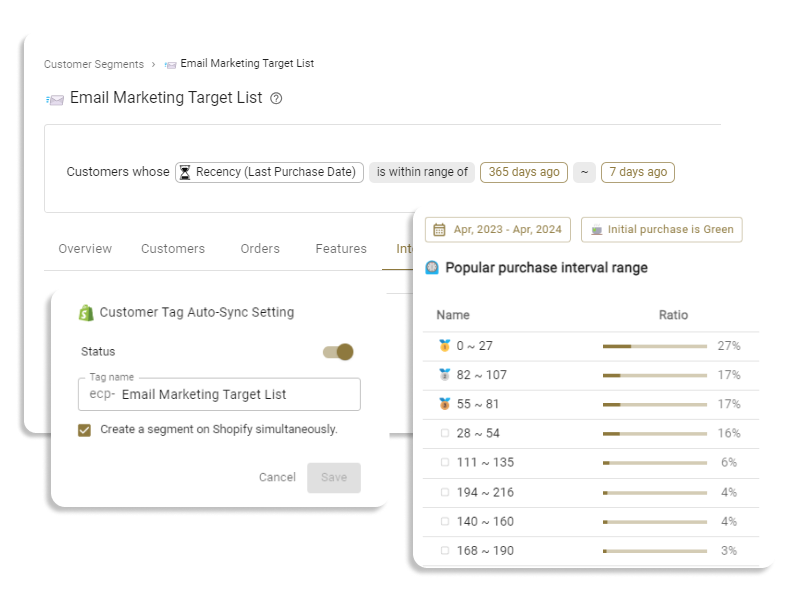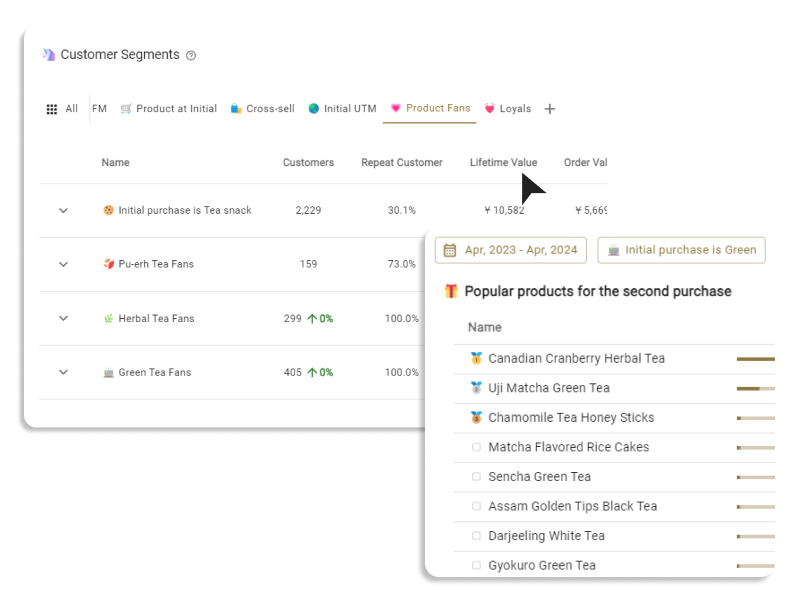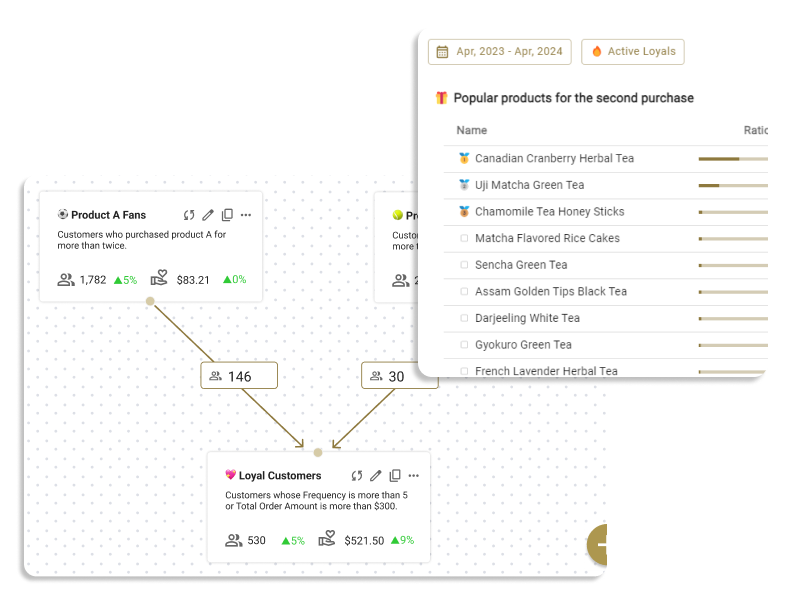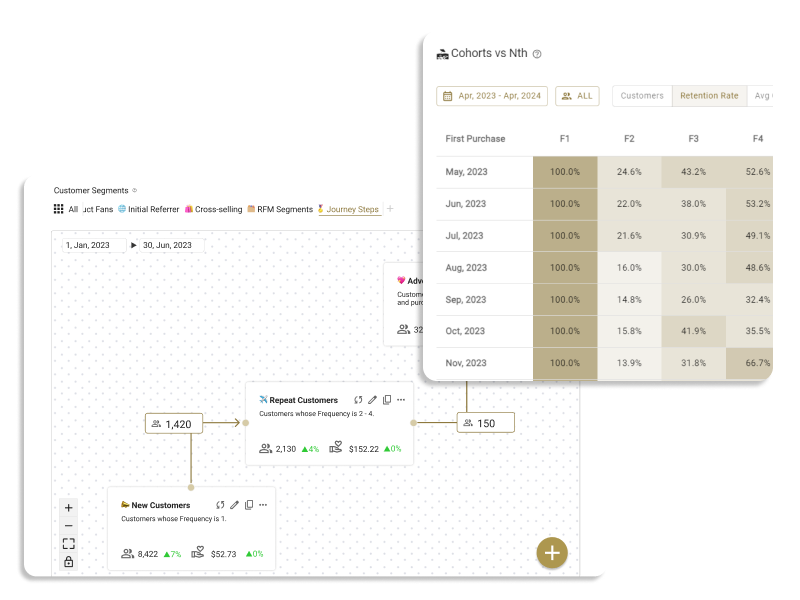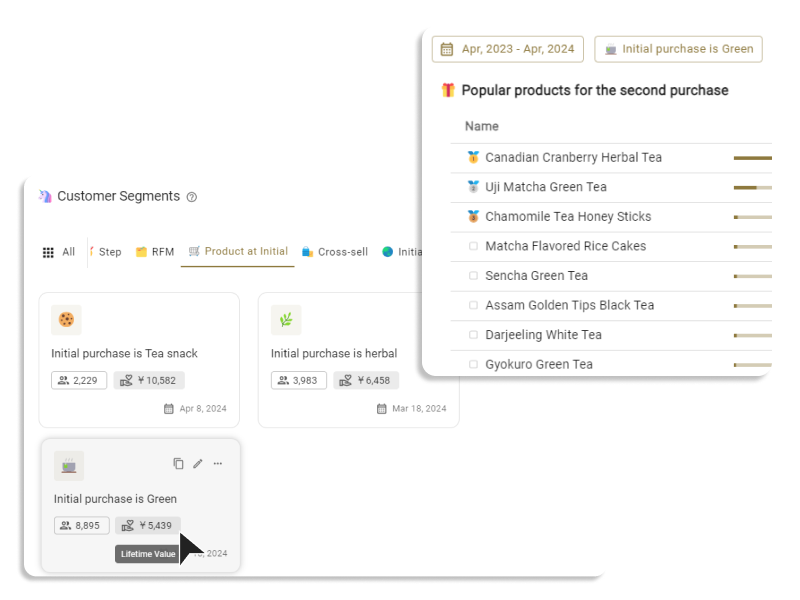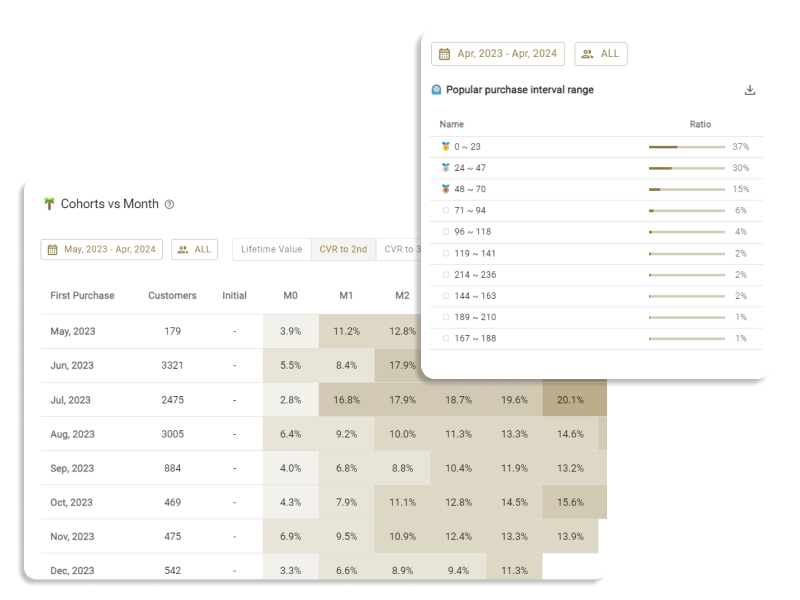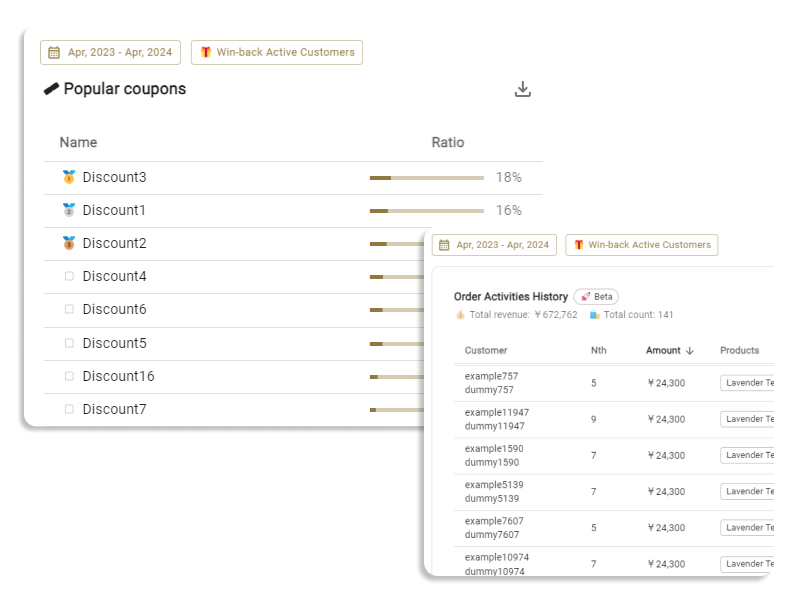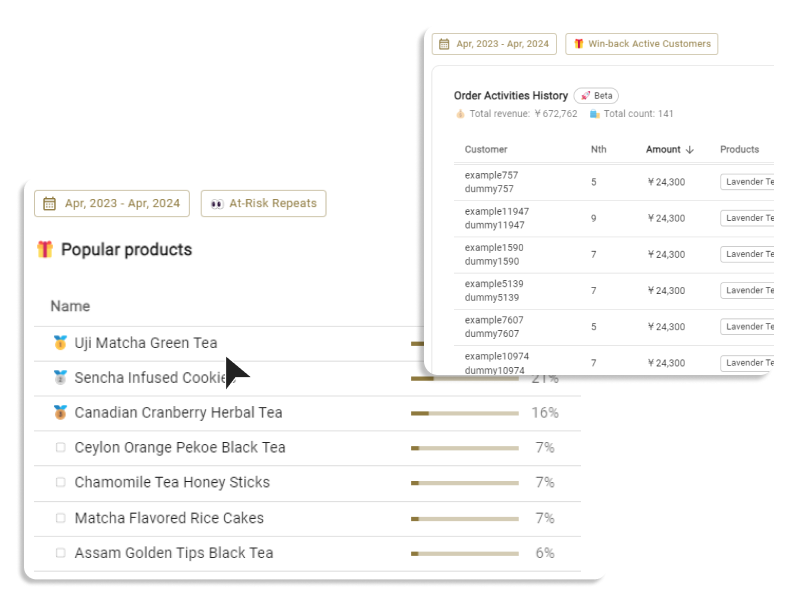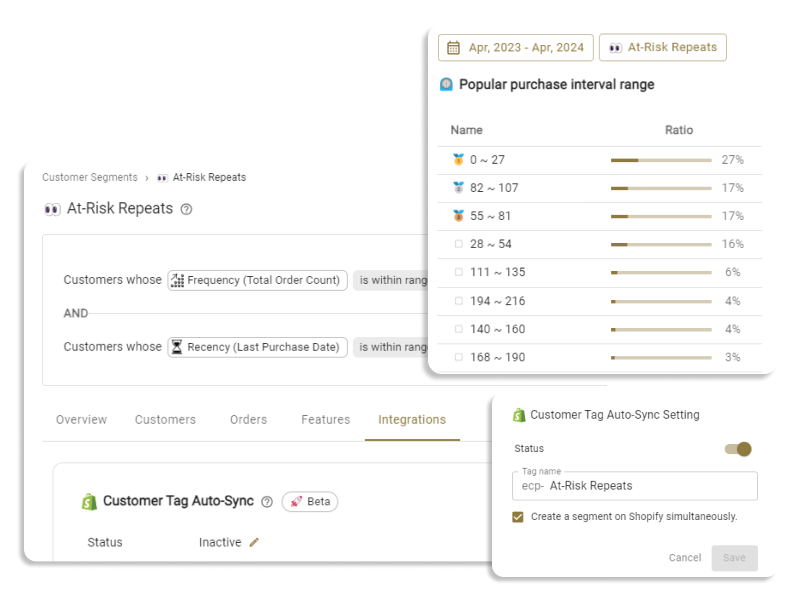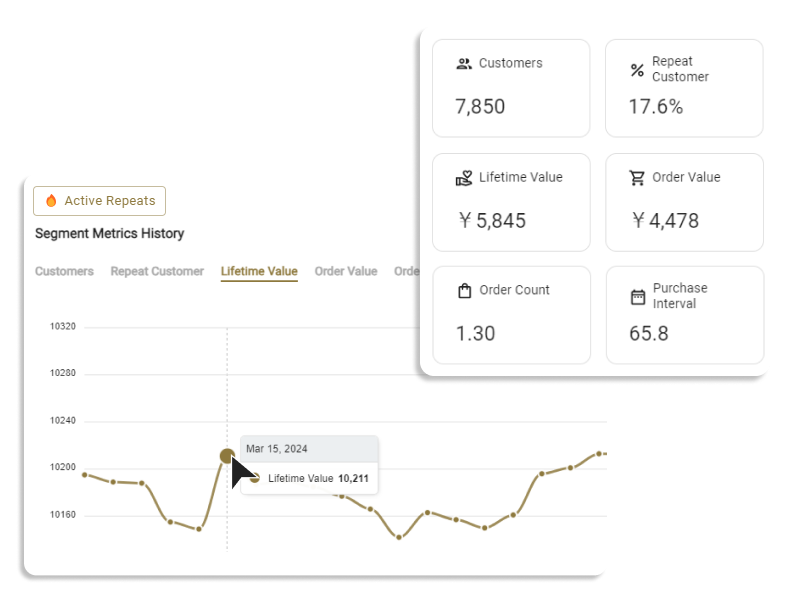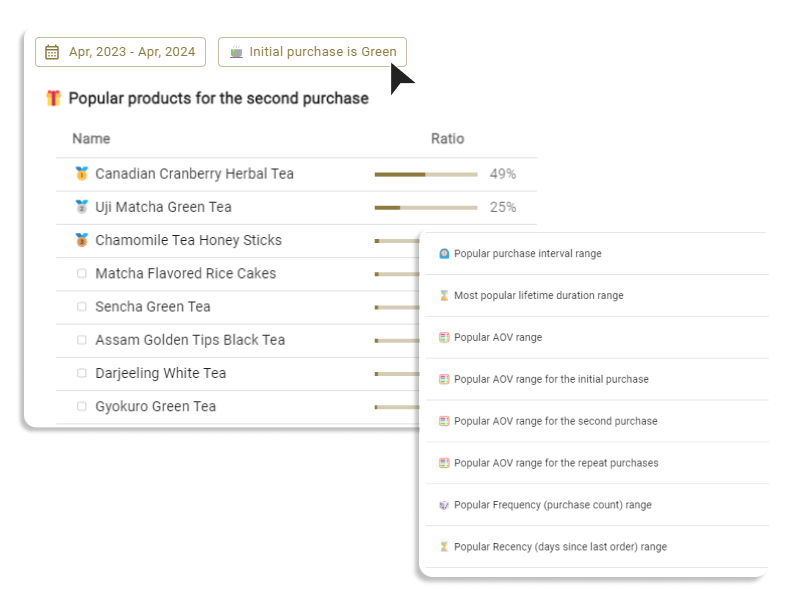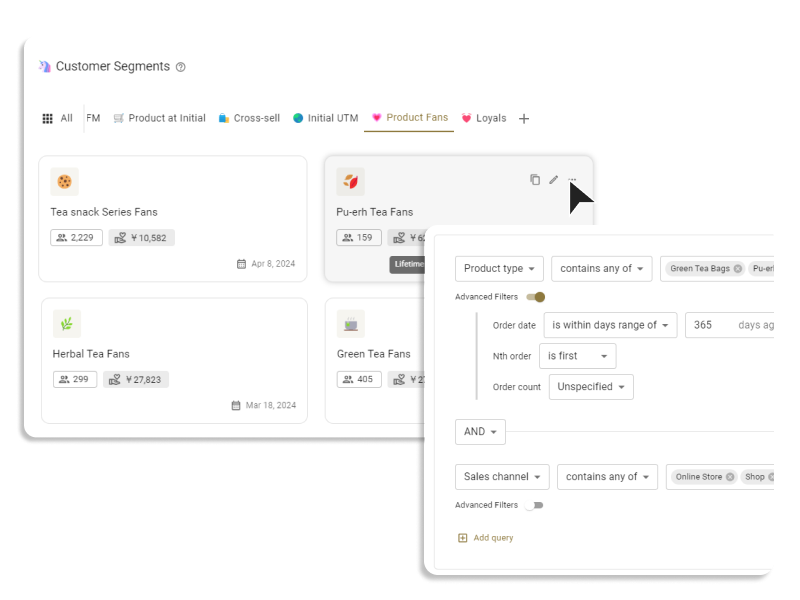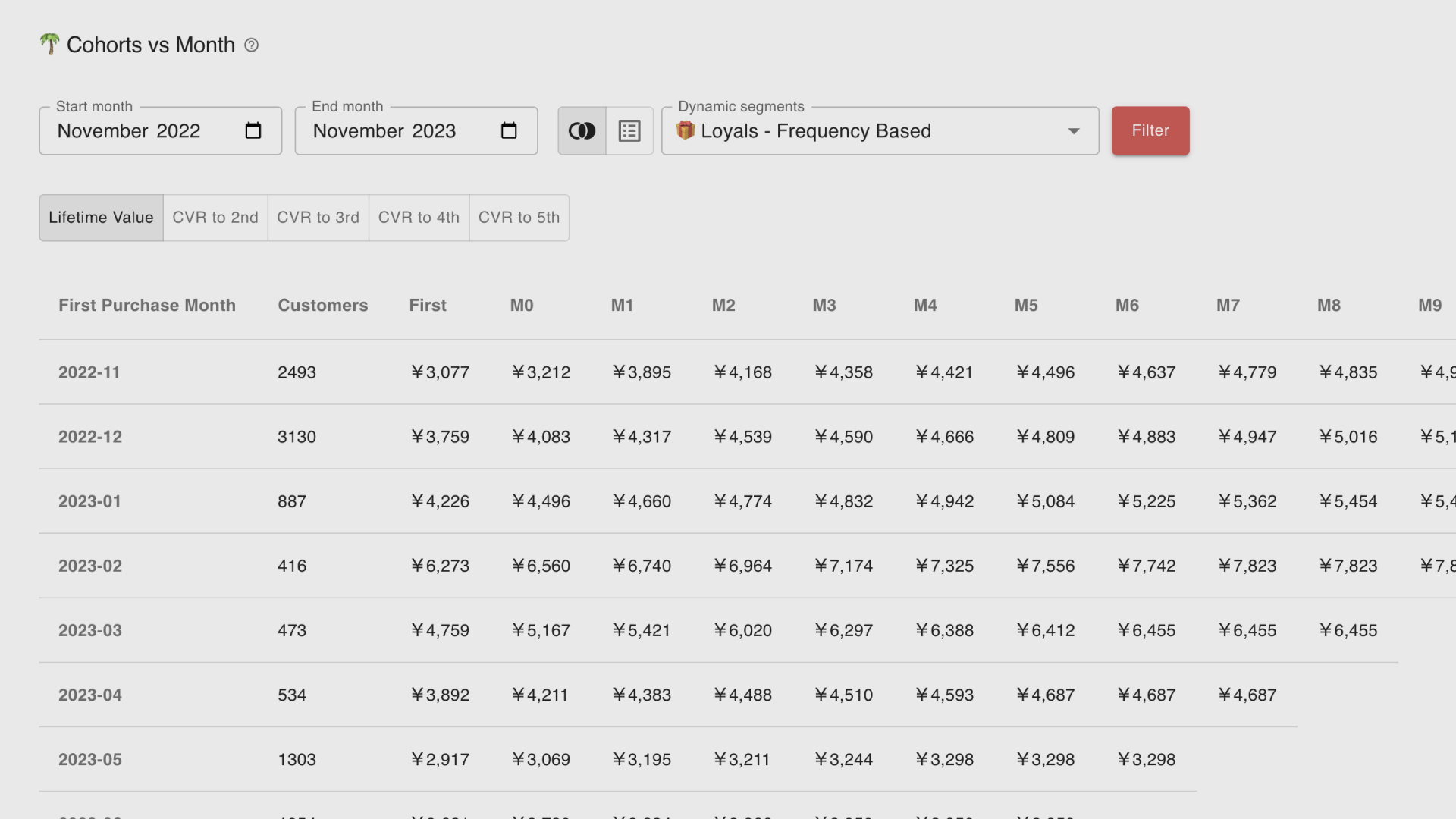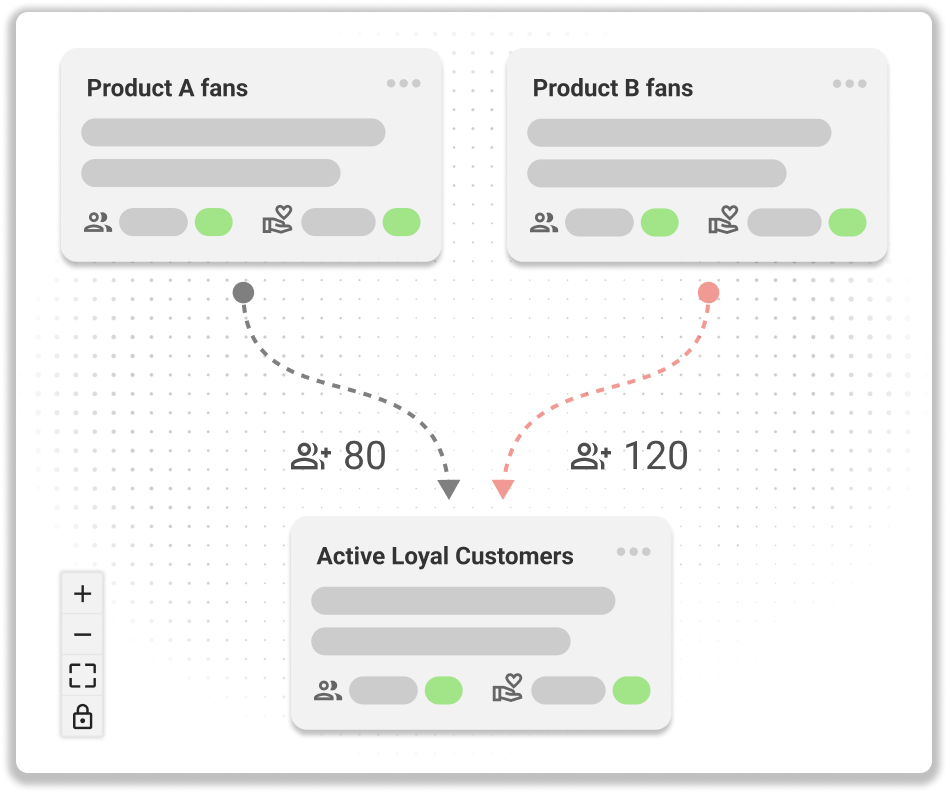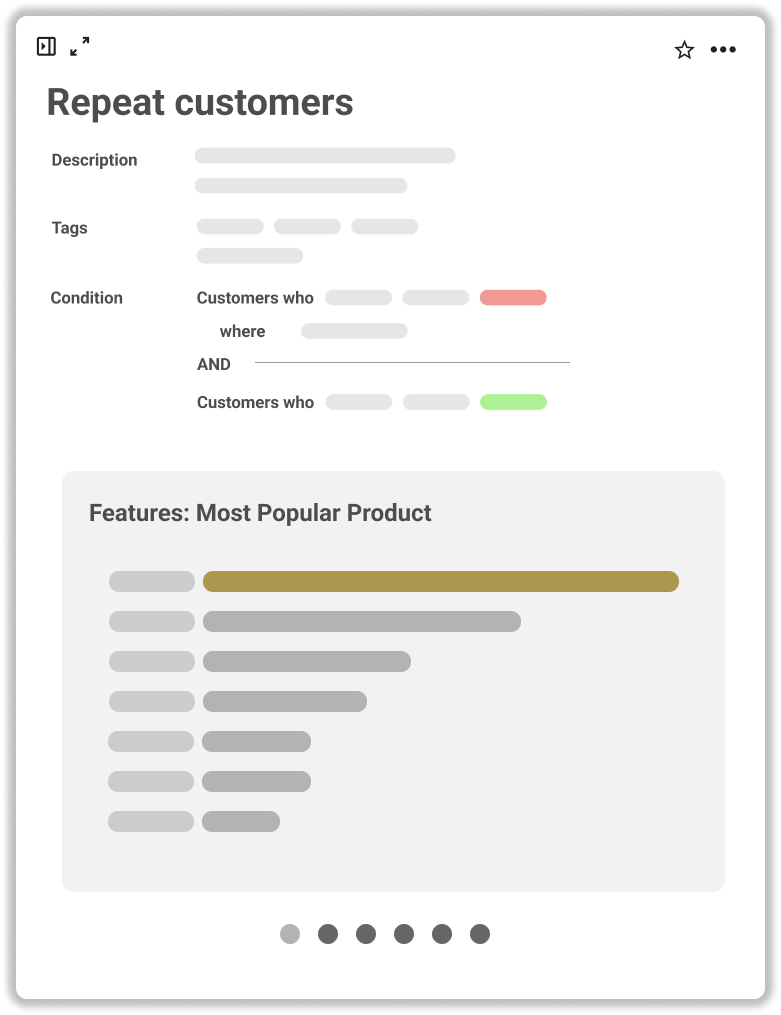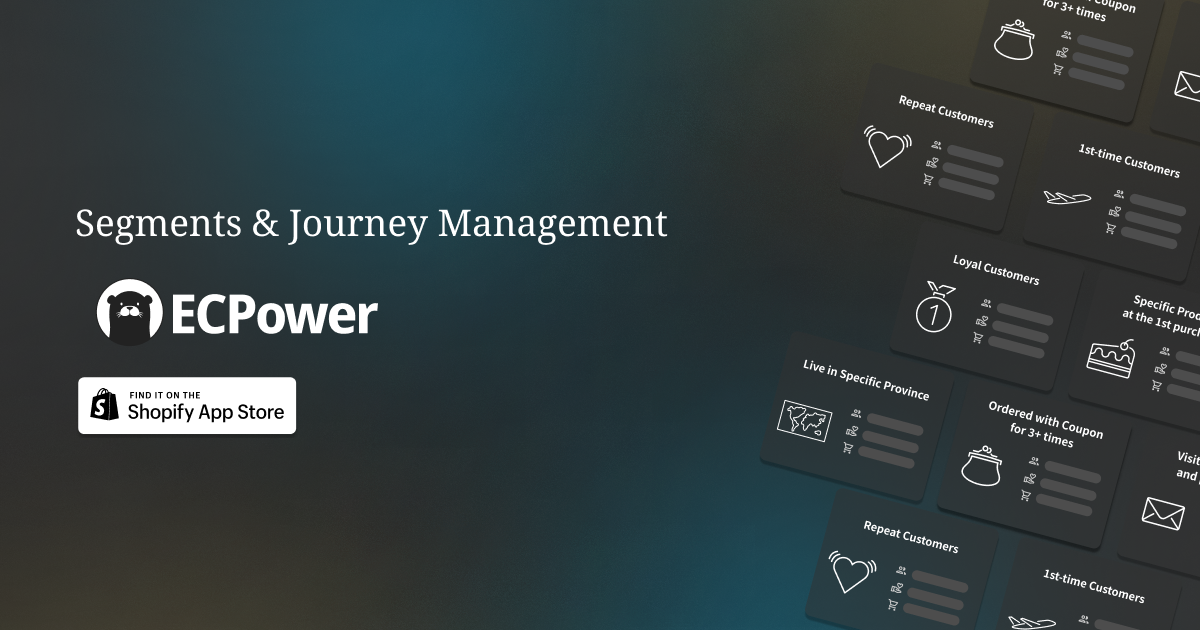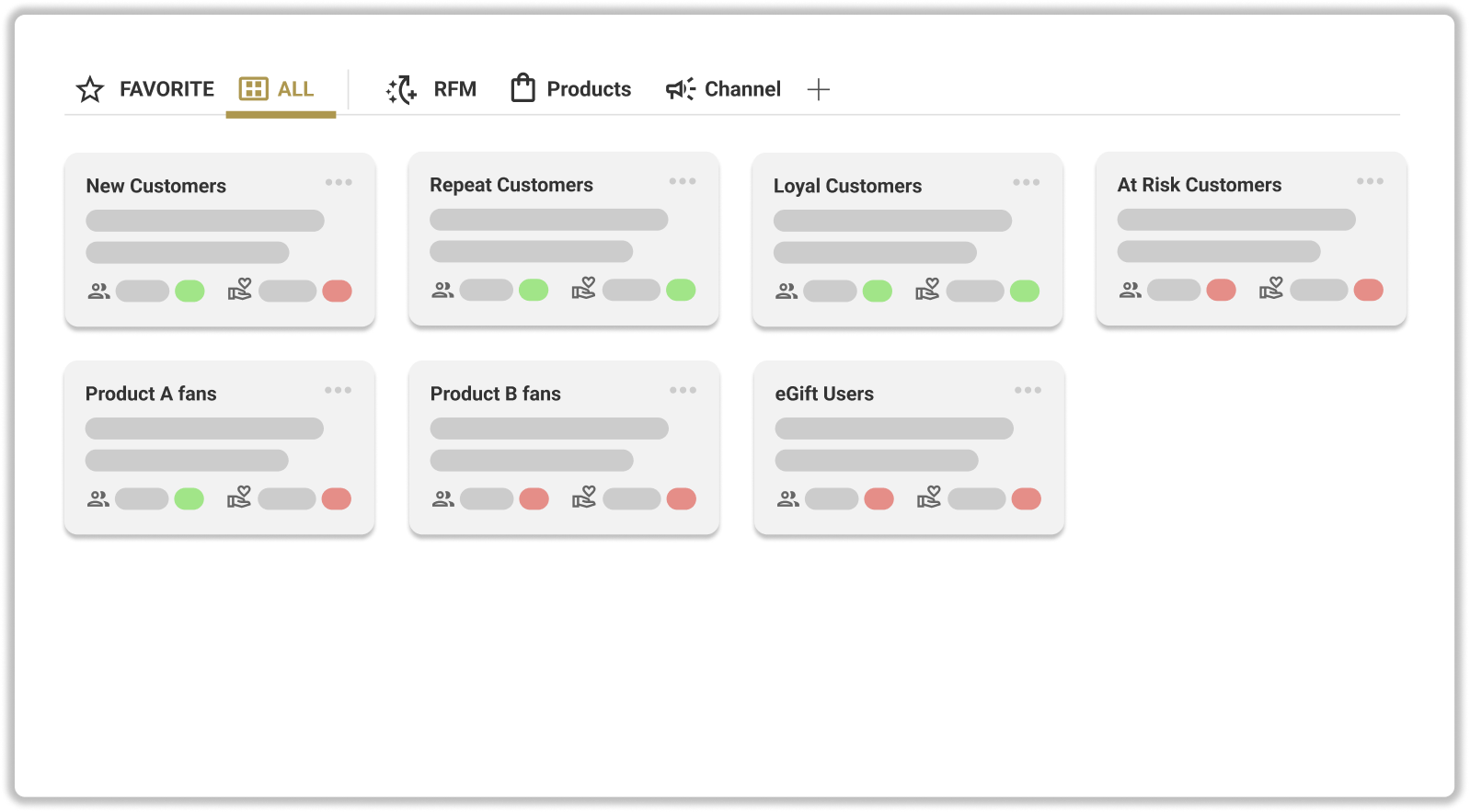In the rapidly evolving landscape of e-commerce, understanding the historical data of customer segments in your Shopify store can be the key to unlocking untapped growth opportunities. ECPower introduces a groundbreaking feature that caters to this very need, empowering store owners with the ability to delve deep into the lifetime value (LTV), sales, and behavioral trends of their customers.
Overcoming Historical Data Hurdles
It's important to track and analyze critical metrics such as segment size, repeat customer rate, LTV, and sales per customer segment. However, the challenge is, you could only scrutinize data from the point of a customer segment's creation, making it difficult to gauge historical performance or compare year-over-year trends.
Introducing Beta Service for Reproducing Historical Data
To address the gap, ECPower is rolling out a beta service, enabling users to request the creation of historical data for specific customer segments and time periods. This service, aimed at testing the functionality, promises to make past data accessible with a click in the future.

How It Works
- Initiate the Process: Contact the support team specifying the customer segment and the period you wish to analyze.
- Data Creation: Our team will generate comprehensive data, including metrics like "Customer counts," "Repeat Customer %," "Lifetime value," and activities such as "Revenue" and "Order count."
- Delivery: Expect the past data to be reflected on your charts within three business days.
Eligibility and Limitations
- Available to Paid Plan users.
- Maximum of 5 segments per month, with data spanning up to 365 days.
- Additional requests beyond these limits can be accommodated with separate billing.
Navigating data accuracy and quality
Due to constraints on data that can be integrated with Shopify, the accuracy of the data may decrease depending on the conditions of the customer segment. The following three points particularly affect the accuracy of the data:
Customer tags are calculated based on the assumption that they have been applied since the customer's first purchase.
For example, assuming you have customer segments of 'customers with "Bronze Member" tag' and want to produce data back to 2022.
Creating 2022 data for a customer segment with the "Bronze Member" tag assumes the customer was a "Bronze Member" from 2022, even if they actually became one in 2023.
Conversely, customers who were "Bronze Members" in 2022 but are not at the current time will not be reflected in the data created.
This is because Shopify does not retain data on "customer tag history" or when the customer tag was changed.
*For this reason, segments related to customer tags are not recommended due to the inability to guarantee data accuracy. (Consider this data for reference only)
If product tags or product types associated with products have changed during the period, all calculations will be based on the current data.
For example, assuming you have customer segments of 'purchased product with "Recommended Product" tag' and want to produce data back to 2022.
If a product did not have a product tag in 2022 but was tagged as "Recommended Product" in 2023, the calculation will assume the tag was present in 2022.
This is because Shopify does not retain data on when product tags were changed.
If the product name was changed midway, data from before the change cannot be reflected.
For example, assuming you have customer segments of 'purchased [Recommended] Macaron Set' and want to produce data back to 2022.
If a product was named "Macaron Set" in 2022 and changed to "[Recommended] Macaron Set" in 2023, customers who ordered under the old product name will not be reflected in the data (the customer count will be zero).
This is a limitation of ECPower's specifications, and improvements are planned for the future.


